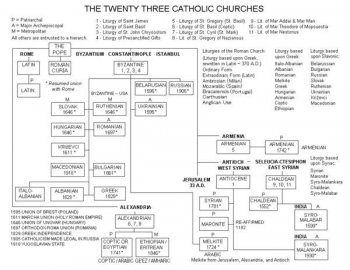BreadOfLife
Well-Known Member
- Jan 2, 2017
- 20,936
- 3,387
- 113
- Faith
- Christian
- Country
- United States
Either you're NOT that bright - or you're just ignorant.Surely you just???? Not one of those quotes has anything to do with a fictitious place called purgatory where dead people's souls are alive and awaiting their release through the prayers or money of the living.
John 20:21-23 says nothing about forgiving people that died and are in purgatory. You are reading that into the text.
2 Corinthians 2:5-10 refers to forgiving the man who was put out of the church in 1 Corinthians 5:1-5. Paul is telling them to forgive him and allow him to return.
You use the wrong definition of martyr when utilizing those quotes. This is from the New Advent Catholic Encyclopedia;
The Greek word martus signifies a witness who testifies to a fact of which he has knowledge from personal observation. It is in this sense that the term first appears in Christian literature; the Apostles were "witnesses" of all that they had observed in the public life of Christ, as well as of all they had learned from His teaching, "in Jerusalem, and in all Judea, and Samaria, and even to the uttermost part of the earth" (Acts 1:8).Your quote of Tertulian's Ad Martyras is taken out of context. The context makes it clear that he is addressing living martyrs who are in prison awaiting death. Chapter 1 begins with;
...
Thus, within the lifetime of the Apostles, the term martus came to be used in the sense of a witness who at any time might be called upon to deny what he testified to, under penalty of death. From this stage the transition was easy to the ordinary meaning of the term, as used ever since in Christian literature: a martyr, or witness of Christ, is a person who, though he has never seen nor heard the Divine Founder of the Church, is yet so firmly convinced of the truths of the Christian religion, that he gladly suffers death rather than deny it. St. John, at the end of the first century, employs the word with this meaning; Antipas, a convert from paganism, is spoken of as a "faithful witness (martus) who was slain among you, where Satan dwelleth" (Revelation 2:13). Further on the same Apostle speaks of the "souls of them that were slain for the Word of God and for the testimony (martyrian) which they held" (Revelation 6:9).
Blessed Martyrs Designate — Along with the provision which our lady mother the Church from her bountiful breasts, and each brother out of his private means, makes for your bodily wants in the prison, accept also from me some contribution to your spiritual sustenance; for it is not good that the flesh be feasted and the spirit starve: nay, if that which is weak be carefully looked to (the flesh), it is but right that that which is still weaker should not be neglected. (Parenthesis mine)Your Council of Ancyra is also out of context;
Concerning women who commit fornication, and destroy that which they have conceived, or who are employed in making drugs for abortion, a former decree excluded them until the hour of death, and to this some have assented. Nevertheless, being desirous to use somewhat greater lenity, we have ordained that they fulfil ten years [of penance], according to the prescribed degrees.
Those women were still alive and the Council wanted to be kinder and gentler to them (lenity), so instead of excluding them right up until the hour of their death, they decided to allow them to make penance (voluntary self-punishment inflicted as an outward expression of repentance for having done wrong) for ten years. This is done by living people, not dead people in purgatory.
I could go through the rest and discredit every one of your quotes, but what I have shared will suffice.
All your posts end with that statement, but it should be changed to, "Teaching Catholic lies online for 15 years . . ."
YOU asked me for Early Church evidence of the doctrine of INDULGENCES - not Purgatory.
They are TWO SEPARATE doctrines.
So, you ask me about ONE doctrine - then attack me for not giving ample evidence for another.
That's like me asking YOU to show me your Driver's Licence - then attacking you for not being an astronaut.
It's just that stupid . . .


